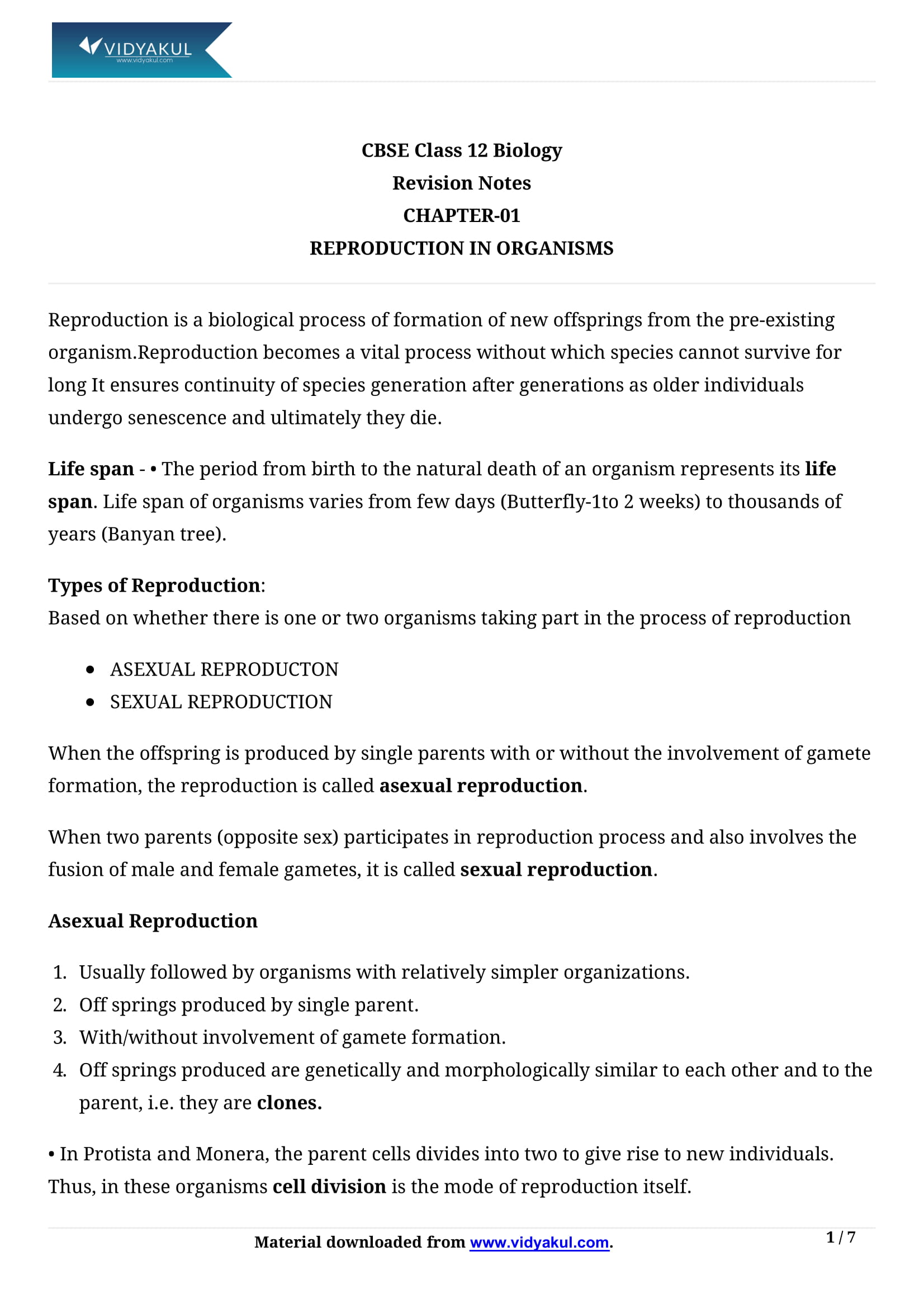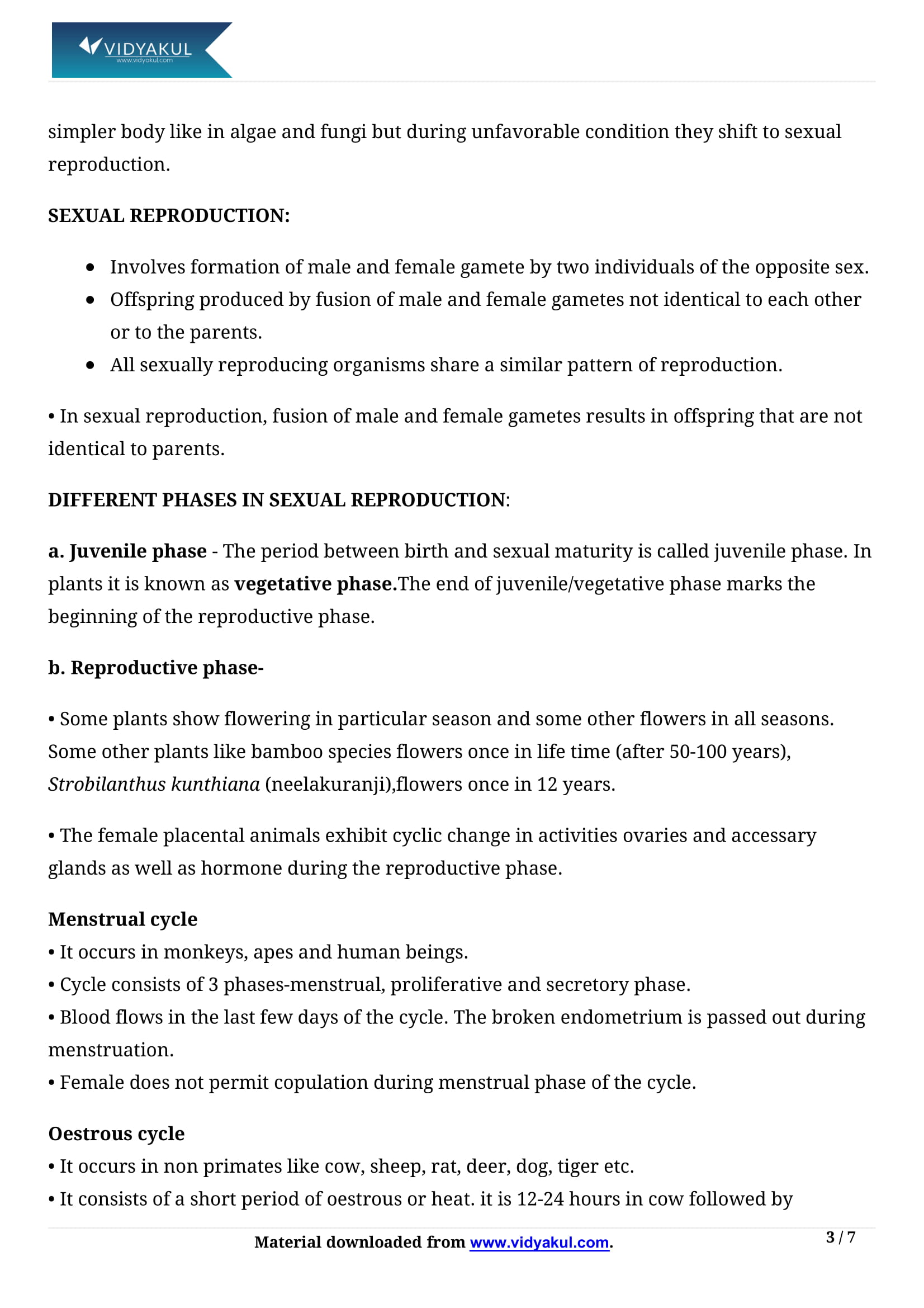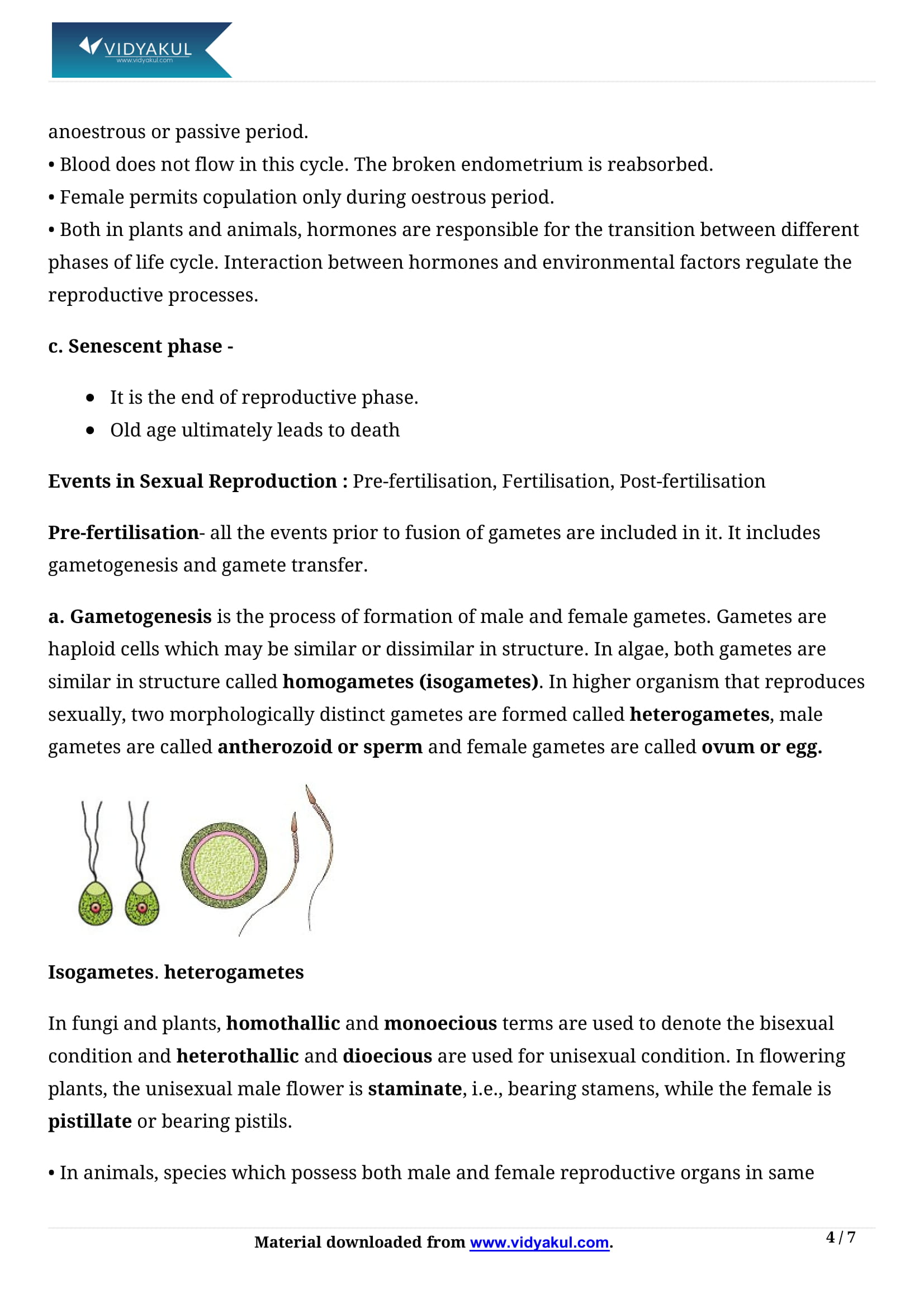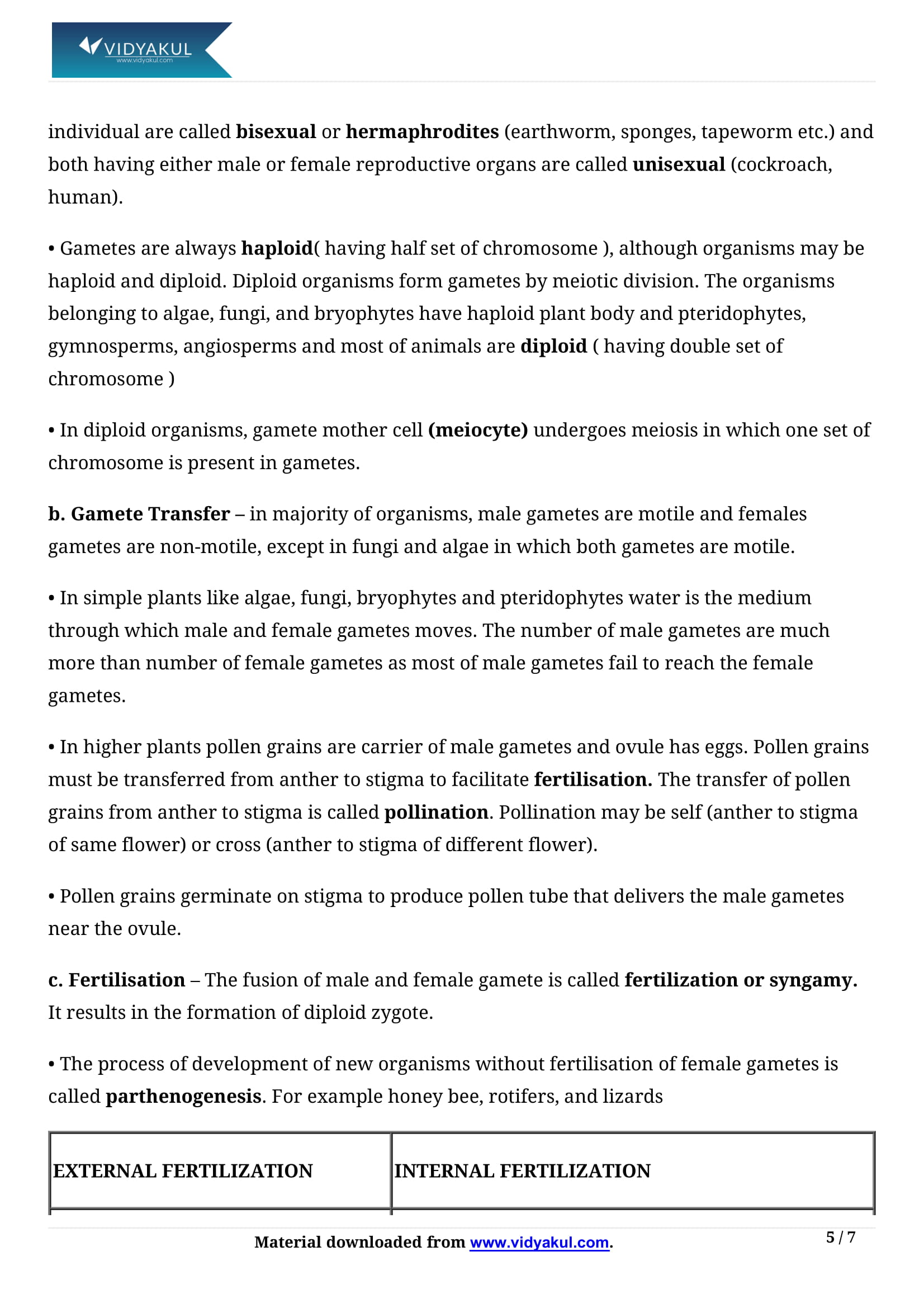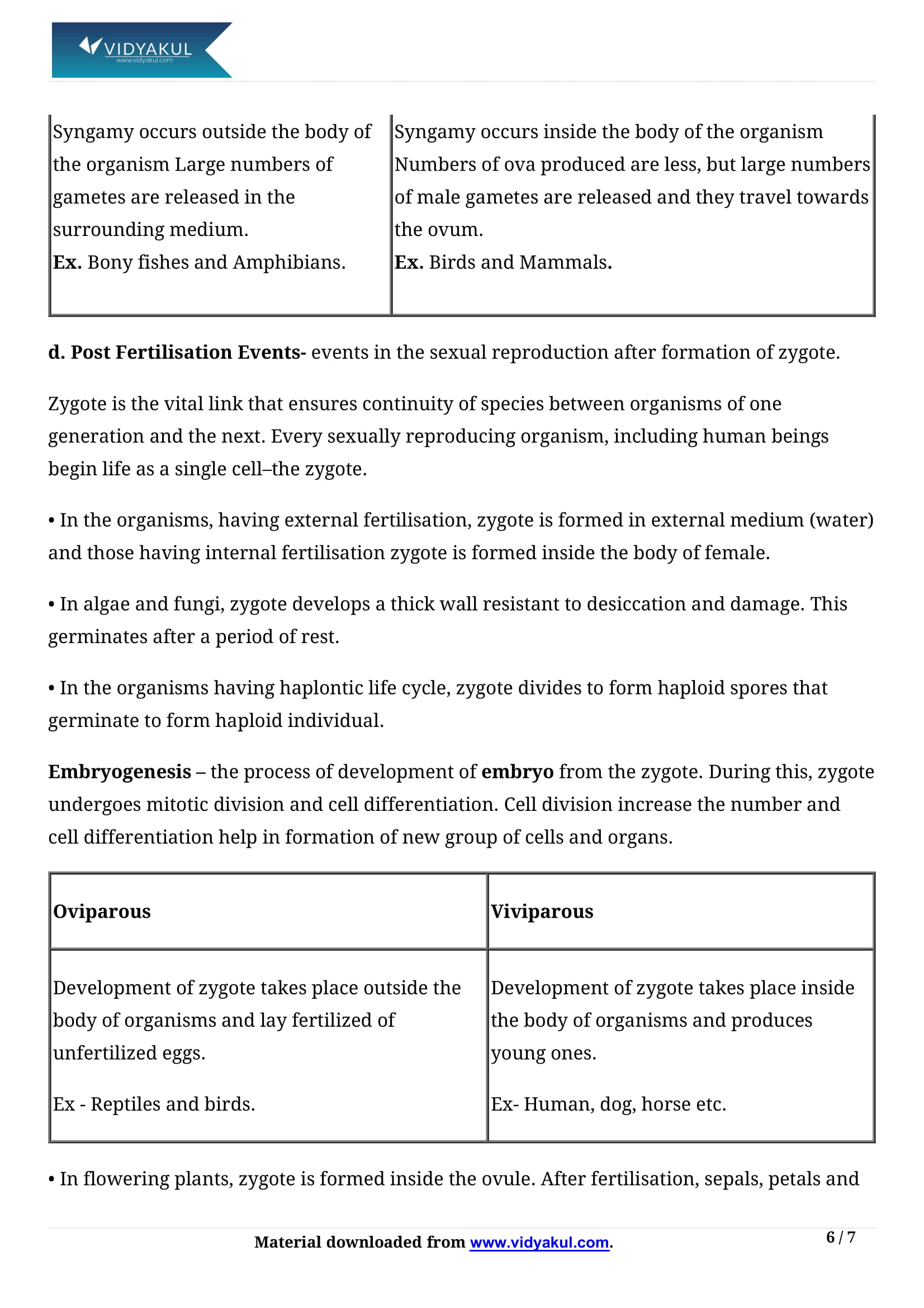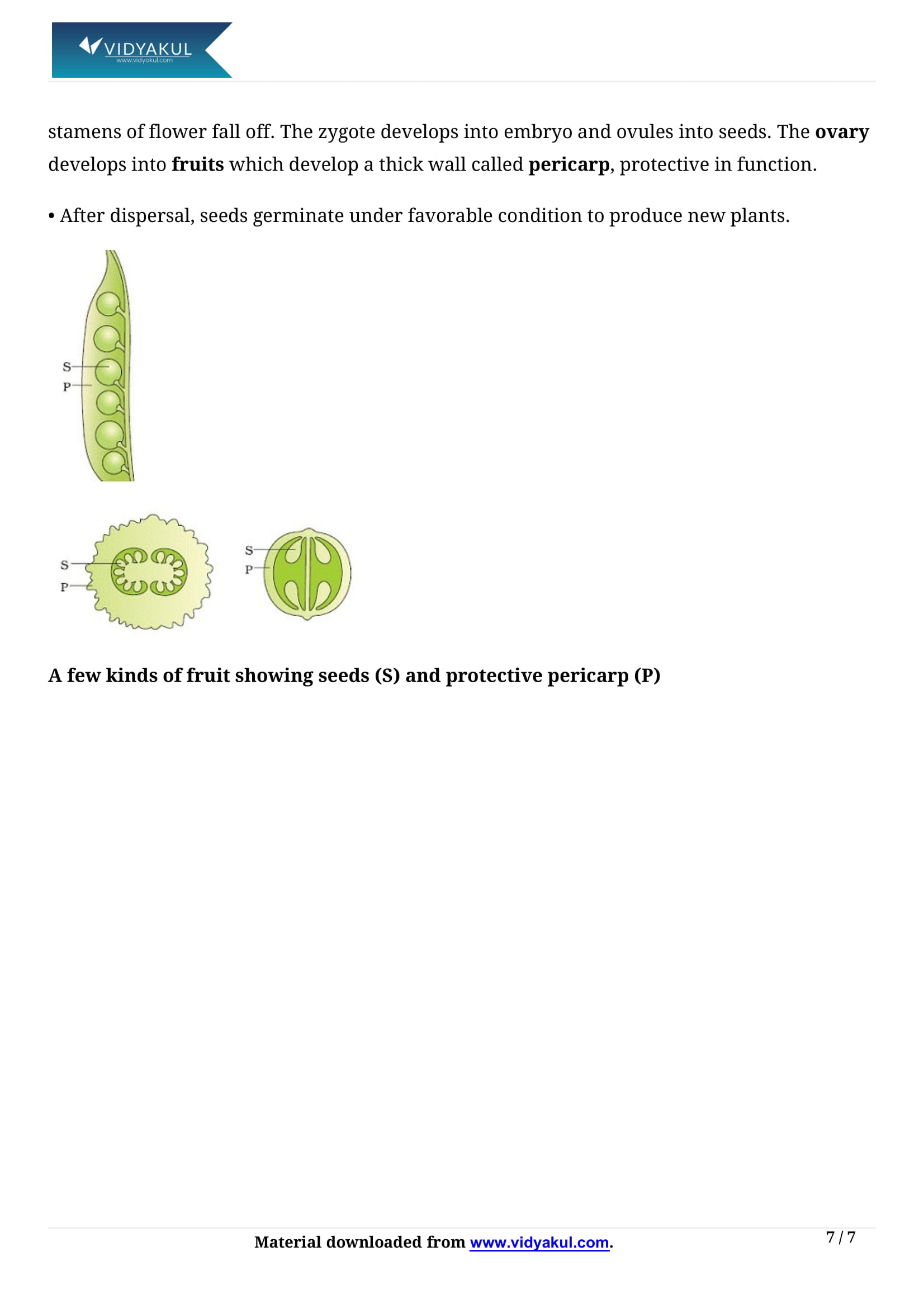Reproduction in Organism Class 12 Notes
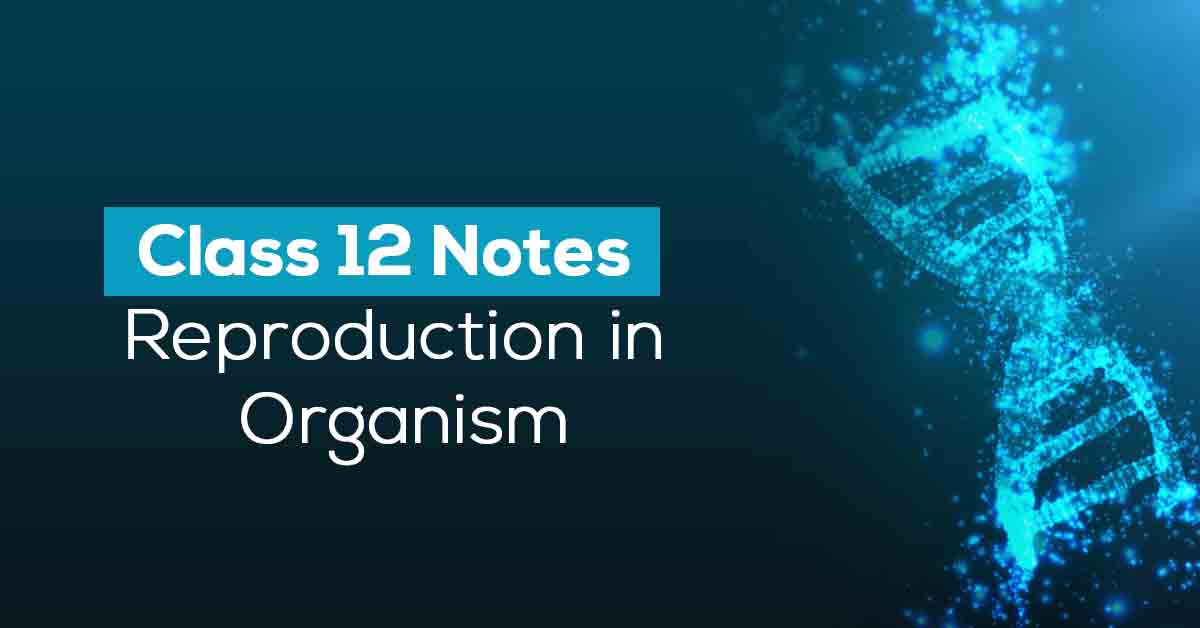
Chapter 1 Reproduction in Organism
Grade 12 biology is a compulsory subject for students who wish to pursue a career in medicine, zoology, or botany. Students are encouraged to refer to the Grade 12 Biology NCERT notes when preparing for the exam to easily learn important concepts and problem-solving strategies.
This article provides Biology Level 12 NCERT notes to help students prepare for the exam. The notes presented here are prepared by the best academic experts of Vidyakul based on the latest curriculum. These chapter questions will give students more time to review and practice for exams. Read on to access free CBSE NCERT Grade 12 Biology Notes notes chapter by chapter.
CBSE CLASS 12th BIOLOGY CHAPTER-1
Points to Remember
To further help students prepare for their exams, we have provided some important points that are covered in NCERT 12th Biology which students can refer to below:
Reproduction is the biological process by which new individual organisms’ offspring are produced from their parents.
There are two major types of reproduction in the biological world; asexual and sexual.
Human beings reproduce sexually and are viviparous.
Diseases or infections which are transmitted through sexual intercourse are collectively called sexually transmitted diseases (STDs).
Some common STDs are gonorrhea, syphilis, genital herpes, chlamydiosis, genital warts, trichomoniasis, hepatitis-B, AIDS, etc.
Genetics is a branch of biology that deals with principles of inheritance and its practices.
The first scientific study leading to formulations of laws of inheritance was carried out by Gregor Johann Mendel, known as the ‘father of genetics.
Multiple Ovulation Embryo Transfer Technology (MOET) is used for the improvement of some animals like cattle, sheep, etc.
In the MOET technique, the target animal is administered hormones having activity similar to Follicular Stimulating Hormone (FSH). These hormones induce follicular maturation and superovulation.
Biotechnology has provided many useful products by using microbes, plants, and animals and their metabolic systems.
Recombinant DNA (rDNA) technology modifies microbes, plants, and animals by manipulating genes in them.
Biosphere is the largest and most nearly self-sufficient biological system, and it can also be called the ecosphere.
Ecosystem is a community of living organisms and the physical environment, both interacting and exchanging materials between them.
Topics and Sub-topics
The NCERT notes for Class 12 Biology are designed in an easy-to-understand manner that helps clarify the students’ most complex problems. Furthermore, these notes are also a great way to learn about the exam pattern, mark distribution, and the probable questions that can be asked in the exams. Students who have taken Science in Class 12 must follow the Class 12 Biology NCERT notes carefully.
Biology is all about definitions, diagrams, and more. It consists of various chapters that require students to understand the concept properly. Therefore, the NCERT notes for Class 12 Biology are aimed at simplifying all these. Apart from theory, it also contains details about the practice exams that can help students in their board exams.
Students can refer to the table below to check the important chapters covered in Class 12 Biology:
Frequently Asked Questions
What is ‘Budding’?
A form of asexual reproduction in which a new individual develops from some generative anatomical point of the parent organism.
What is a ‘Hydra’?
The Genus of invertebrate freshwater animals of the class Hydrozoa (phylum Cnidaria) is called a ‘Hydra’.
What is an ‘Embryo’?
An unborn human or animal in the earliest stages of growth when its basic structures are being formed is called an ‘Embryo’.
Practice Questions
What is a bisexual flower?
What is vegetative propagation?
Distinguish between Asexual and Sexual Reproduction.
Distinguish between Gametogenesis and Embryogenesis.
Reproduction is the biological process by which new individual organisms’ offspring are produced from their parents.
There are two major types of reproduction in the biological world; asexual and sexual.
Human beings reproduce sexually and are viviparous.
Diseases or infections which are transmitted through sexual intercourse are collectively called sexually transmitted diseases (STDs).
Some common STDs are gonorrhea, syphilis, genital herpes, chlamydiosis, genital warts, trichomoniasis, hepatitis-B, AIDS, etc.
Genetics is a branch of biology that deals with principles of inheritance and its practices.
The first scientific study leading to formulations of laws of inheritance was carried out by Gregor Johann Mendel, known as the ‘father of genetics.
Multiple Ovulation Embryo Transfer Technology (MOET) is used for the improvement of some animals like cattle, sheep, etc.
In the MOET technique, the target animal is administered hormones having activity similar to Follicular Stimulating Hormone (FSH). These hormones induce follicular maturation and superovulation.
Biotechnology has provided many useful products by using microbes, plants, and animals and their metabolic systems.
Recombinant DNA (rDNA) technology modifies microbes, plants, and animals by manipulating genes in them.
Biosphere is the largest and most nearly self-sufficient biological system, and it can also be called the ecosphere.
Ecosystem is a community of living organisms and the physical environment, both interacting and exchanging materials between them.
What is ‘Budding’?
What is a ‘Hydra’?
What is an ‘Embryo’?
What is a bisexual flower?
What is vegetative propagation?
Distinguish between Asexual and Sexual Reproduction.
Distinguish between Gametogenesis and Embryogenesis.
Download this solution for FREE Download this PDF
Download Vidyakul App for more notes, pdf and free video lectures.
